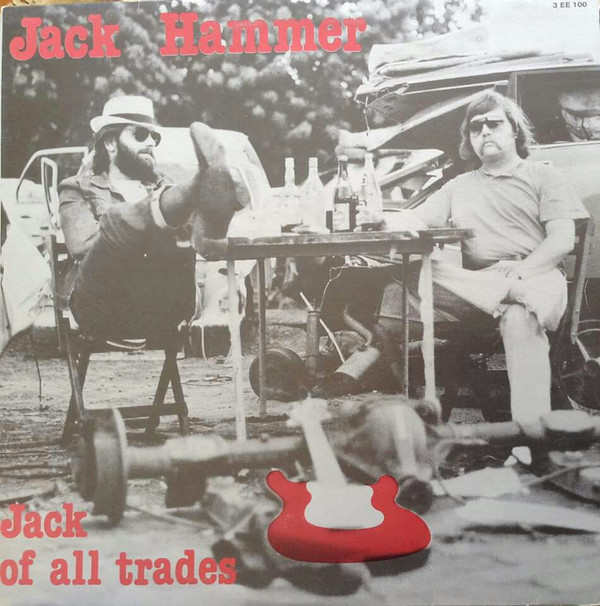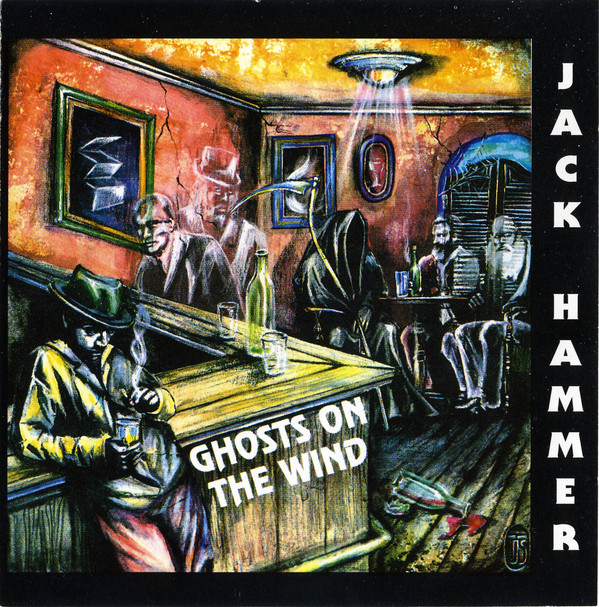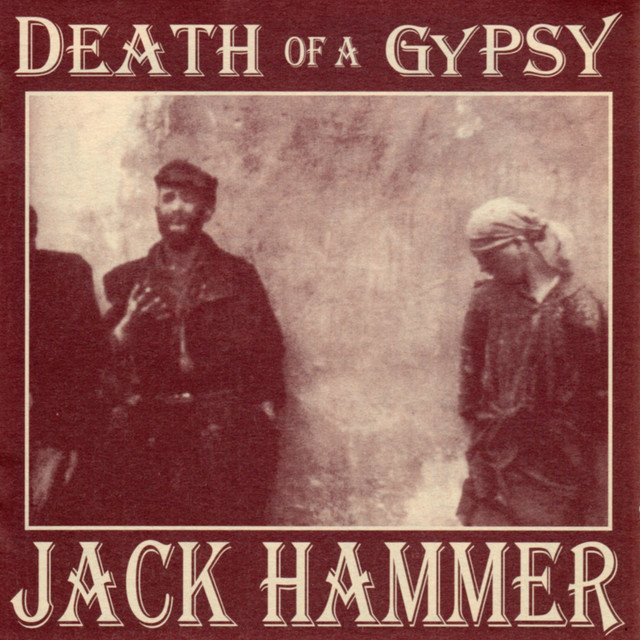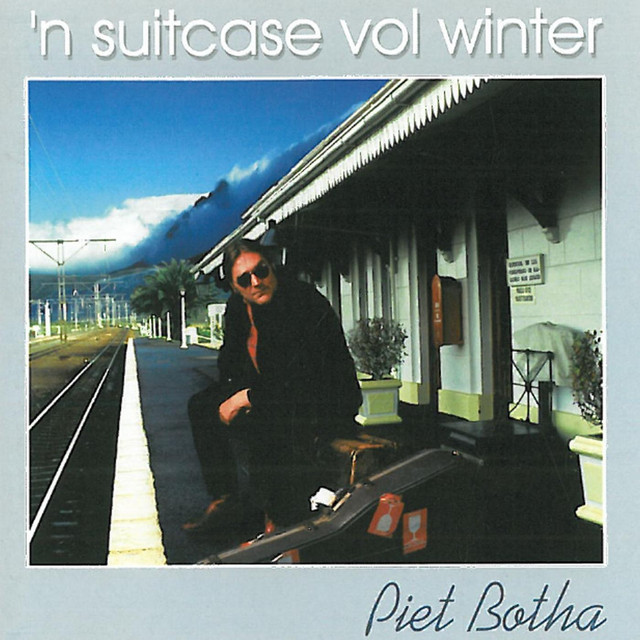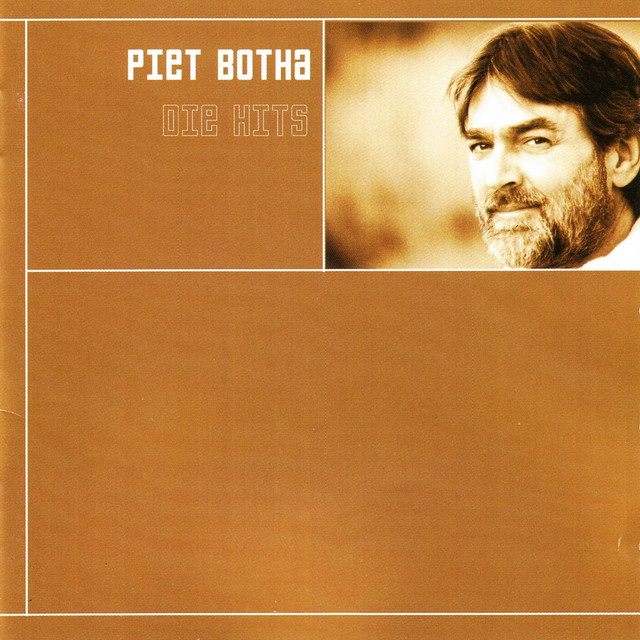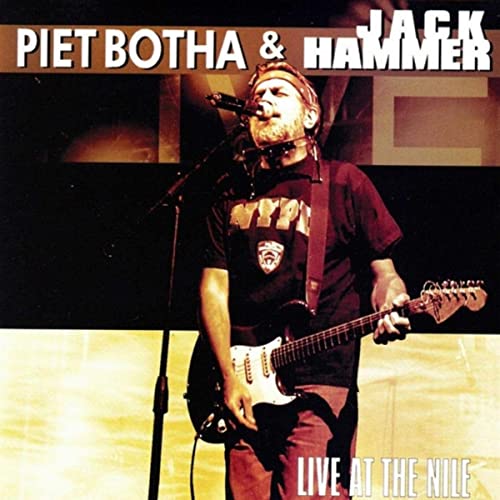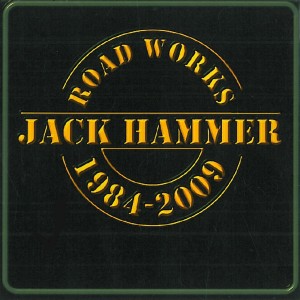
Tracks
- Codename Ruby [4.30]
- Big Six Blues [3.26]
- January’s Son [3.56]
- Ancient Heart [3.14]
- Gypsy’s Lament [3.23]
- Sarajevo [4.49]
- Saint Adrian [3.49]
- Death Of A Gypsy [5.16]
- For The Turnstiles [3.34]
- Child [3.34]
- Cocaine Blues [2.52]
- Time [4.57]
(silence) [2.23]
Big Six Blues (alternate version, hidden bonus track) [3.23]
All songs written by JP Botha except ‘For The Turnstiles’ (Neil Young), ‘Ancient Heart’ and ‘Death Of A Gypsy’ (L vd Walt/ JP Botha) and ‘Cocaine Blues’ (Trad. arranged by Jack Hammer).
‘January’s Son‘ was originally released on ‘Jack Of All Trades’, re-recorded in 1995.
Tracks 4 to 8 are grouped together as the ‘Death Of A Gypsy‘ suite on the inside cover.
‘Cocaine Blues’ was originally recorded as ‘Take A Whiff On Me‘ by Lead Belly in 1934, re-recorded by him in 1947.
Musicians
- Piet Botha: vocals, guitars, piano, harmonica
- Lanie van der Walt: guitars
- Paul van de Waal: drums
- Lowell Jeffrey: bass
- Karlien van Niekerk: additional vocals
- Stean van der Walt: additional vocals
- Anneke vd Elst: violin on ‘Gypsy’s Lament’
- Kevin Davidson: flute & saxophone
Recorded in 1995 at Delarey Studios, Johannesburg
Engineered and produced by Phillip Nel
Release information
CD: 1996, Wildebeest Records, WILD001
Review
by Kurt Shoemaker, Blanco, Texas, SA Rock Digest Issue #76, 25 September 2000
I’m a big fan of Jack Hammer and Piet Botha’s music. For the past couple of weeks one of my constant companions has been Jack Hammer’s CD ‘Death of a Gypsy’. It’s a wonderful listen: grim, moody, rocking, and thoughtful — from quiet and intelligent songs to muscular guitar dynamos.
I bought this CD because I highly regard the Jack Hammer ‘Anthology’. (And I recently bought Wildebeest’s re-released ‘Bushrock 1‘ CD — talk about progressive jungle music! Piet Botha plays bass and harmonica on that one). I have been mighty pleased with ‘Death of a Gypsy’.
The songs follow several themes, both musically and lyrically. Here’s my rundown of the track list:
‘Codename Ruby’ — One of the three songs from ‘Death of a Gypsy’ included on ‘Anthology’, a big guitar song. This one grows until by the end it is loping along and soaring at the same time. Sets the melancholy tone and establishes one of the themes, that of parting from friends and lovers.
‘Big Six Blues’ — A road song about being on tour. It is wise, weary, and wry — not to mention poignancy in the bittersweet lyrics, “…sometimes I miss you and sometimes I don’t… That doesn’t mean I don’t love you….”
‘January’s Son’ — A melancholy and haunting song full of feeling. I feel the genuine emotion every time I hear it. This is the second song from ‘Death of a Gypsy’ included on the ‘Anthology’. (The version of ‘January’s Son’ on ‘Anthology’ is actually the original recording from the ‘Jack Of All Trades’ album released in 1987. The version on ‘Death Of A Gypsy is a 1995 re-recording)
‘Ancient Heart’ — A quick-paced tune with simple meaningful lyrics The first of two songs to mention Dominique — a significant person in Piet’s life?
‘Gypsy’s Lament’ — Slight hint of Rasta rhythm here, in this folky number, Rasta Gypsy.
‘Sarajevo’ — Screaming and growling guitars — a strong song with powerful lyrics — not a song for those who want to hear about breakin’ up to make up. This is the third of the three songs included on the ‘Anthology’ from this album. This song makes a big noise that demands to be heard. (I read somewhere a year or so ago that the joke in the Balkans is, “Only the odd-numbered world wars start in the Balkans.”)
‘Saint Adrian’ — After ‘Sarajevo’, this quiet, melodic number. There is a pleading in the song for a purpose to life, a reason for our endless Gypsy-like wandering through life. According to Piet’s liner notes for ‘Anthology’, Saint Adrian was the nickname of a late friend of his (Attie Louw).
‘Death of a Gypsy’ — Who will know of “the songs we made, the cards we played” in one thousand years? Dominique is in this song, too, as the narrator says to her to the effect that, This is the end, the soldiers will soon take us from the room.
‘For the Turnstiles’ — This Jack Hammer version of Neil Young’s song makes Neil’s sound like a demo.
‘Child’ — A wistful song of hope and promise, actually a “promised land”.
‘Cocaine Blues’ — I thought I had heard too many versions of this song by now, but it’s fresh sounding here.
‘Time’ — Nice easygoing tune with wry lyrics, “…a bad time for loving/ was a good time for the blues.” This number closes with an extremely pleasant, almost laid-back, extended jam.
Oh, and don’t be so quick to put on another disc, because if you do you’ll miss a nice untitled bluesy number. (Actually an alternate version of ‘Big Six Blues’ after about 2 minutes of silence)
Because I’m a Jack Hammer and Piet Botha fan, I sure wish the three Jack Hammer CDs not in print would be reissued. These are: ‘Jack of All Trades‘, ‘The Judas Chapter‘, and ‘Ghosts on the Wind‘.
The dominant theme is definitely Gypsy, even to a song title and the CD title. I don’t know if Piet, who wrote all of the songs except for Neil Young’s ‘For the Turnstiles’, ‘Cocaine Blues’, and ‘Gypsy’s Lament’, which he co-wrote with Lani van der Walt, comes from a Gypsy heritage or not — nor does it matter for my appreciation of these songs not only as reflections on the horrible treatment Gypsies have received in Europe at various times, but also as metaphors of human existence in that we wandering humans are born alone, we die alone, and in between we try to make meaningful contact with fellow human beings.
This is an album of strong material, strong both in the sense of solid music and strong in the sense of talking about the hard real politicks of life. The lyric sheet has backdrop photos of Nazis herding up human beings, which adds to the grim air. It is a realistic grimness, a wisdom born of experience. Also in the lyric booklet are negative photos of the band which give them a ghostly, transient air. The cover appears to be a WWII photo of some Gypsies stood before a wall about to be shot.
Militant themes and images run through the lyrics (a couple of examples, “…take any weapon that you need” from ‘Codename Ruby’, and ‘…the sniper, son of fire, he waits patiently/ target one anything that moves….” Wow, powerful lines.)
The CD is not depressing, though. It reminds me of the old saying about the blues: Blues is music about feeling bad that makes you feel good.
Many of the songs have a lonely tone, they involve partings of friends and the wandering of lost souls. The implication is that relationships, contact with people, with friends or lovers or both, are fragile things and easily parted by war and circumstance. I believe there is conscious artistry in the songwriting on the CD.
Overall, this is a CD of many qualities. It has fine songwriting, excellent playing, and a wise sage-like view of the complications of the world.
1001 South African Songs You Must Hear Before You Go Deaf: Sarajevo
by John Samson, 13 July 2018, 1001 South African Songs You Must Hear Before You Go Deaf
The name Sarajevo always conjures up the words war and genocide after the Bosnian war of 1992 to 1996. There were some horrific stories that came out of Bosnia and it’s capital Sarajevo. Jack Hammer, led by Piet Botha, seemed to capture some of that horror and violence in this hard-hitting song from their 1996 album, ‘Death Of A Gypsy’.
From the very first second of the song we are assailed by screaming guitars and pounding drums, which one could easily equate to the pounding of bombs and screams of those on whom the bombs and missiles were falling. But inbetween these barrages of sound, there is an ominous lull where the guitars become the background noise while Piet’s gruff voice half sings, half shouts the lyrics that tell some of the history. The delivery is somewhat akin to a prophet calling judgement upon the people, a voice in the wilderness. The chorus (sung by another member of the band, possibly Stean van der Walt) is the voice of a parent urging the children to ‘Go now go now child/Go with the night and go to the mountain’ to run away from the war.
The memories and news of Sarajevo and the atrocities that happened there were very fresh when Jack Hammer recorded this blistering political song. While this song is particularly about Sarajevo and the Bosnian war, it could easily apply to any situation in the world where such atrocities have happened (and we know that there are many of them). Perhaps what one can take from this, apart from a pounding of your aural senses, is the last line of the second verse, ‘Mother you must take your children/Away from the frontline’.
Take A Whiff On Me – Leadbelly
Discography
